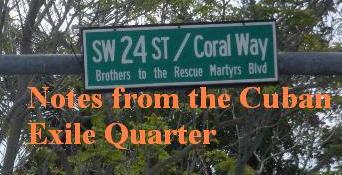 "Pure, selfless, persecuted, tormented, poetic and simple, the religion of the Nazarene enthralled all honourable men.... Every people needs to be religious. Not only as part of its essence, but for its own practical benefit it needs to be religious.... An irreligious people will die, because nothing in it encourages virtue. Human injustices offend virtue; it is necessary that heavenly justice guarantee it". -José Martí
"Pure, selfless, persecuted, tormented, poetic and simple, the religion of the Nazarene enthralled all honourable men.... Every people needs to be religious. Not only as part of its essence, but for its own practical benefit it needs to be religious.... An irreligious people will die, because nothing in it encourages virtue. Human injustices offend virtue; it is necessary that heavenly justice guarantee it". -José Martí I think they kill my child every time they deprive a person of their right to think. -José Martí
On the threshold of the Year 2000, the teachings of Jesus maintain their full force. They are valid for all of you, dear brothers and sisters. In seeking the justice of the kingdom we cannot hesitate in the face of difficulties and misunderstandings. If the Master's call to justice, to service and to love is accepted as good news, then the heart is expanded, criteria are transformed and a culture of love and life is born. This is the great change which society needs and expects; and it can only come about if there is first a conversion of each individual heart, as a condition for the necessary changes in the structures of society.
6. "The Spirit of the Lord has sent me to proclaim release to the captives ... to set at liberty those who are oppressed" (Lk 4:18). The Good News of Jesus must be accompanied by a proclamation of freedom based on the solid foundation of truth: "If you continue in my word, you are truly my disciples, and you will know the truth and the truth will make you free" (Jn 8:31-32). The truth of which Jesus speaks is not only the intellectual grasp of reality, but also the truth about man and his transcendent condition, his rights and duties, his greatness and his limitations. It is the same truth which Jesus proclaimed with his life, reaffirmed before Pilate and, by his silence, before Herod; it is the same truth that led him to his saving Cross and his glorious Resurrection.
A freedom which is not based on truth conditions man in such a way that he sometimes becomes the object and not the subject of his social, cultural, economic and political surroundings; this leaves him almost no initiative for his personal development. At other times that freedom takes on an individualistic cast and, with no regard for the freedom of others, imprisons man in his own egoism. The attainment of freedom in responsibility is a duty which no one can shirk. For Christians, the freedom of the children of God is not only a gift and a task, but its attainment also involves an invaluable witness and a genuine contribution to the journey towards the liberation of the whole human race. This liberation cannot be reduced to its social and political aspects, but rather reaches its fullness in the exercise of freedom of conscience, the basis and foundation of all other human rights.
To the crowds who were shouting: "The Pope is free and wants us all to be free", the Holy Father replied:
Yes, he lives with that freedom for which Christ has set you free.
José Martí understood this, but after the terror imposed amnesia initiated in 1959 it is important to repeat it, internalize it and let others know of this profound truth that the process of liberation begins with the exercise of freedom of conscience and that is precisely what Pope John Paul II did on that Sunday afternoon reminding Cubans:
The teaching of José Martí on love between all people had profoundly evangelical roots, and thus overcame the false conflict between faith in God and love and service to one's country. This great leader wrote: "Pure, selfless, persecuted, tormented, poetic and simple, the religion of the Nazarene enthralled all honourable men.... Every people needs to be religious. Not only as part of its essence, but for its own practical benefit it needs to be religious.... An irreligious people will die, because nothing in it encourages virtue. Human injustices offend virtue; it is necessary that heavenly justice guarantee it".The physical deterioration of the island of Cuba is a material manifestation of the spiritual deterioration that has taken place over half a century where militant atheism for three decades followed by a hostile secularism for more than two decades sought to crush all faiths and freedom of conscience in general. The end result a culture of terror where the truth for too long was something to be hidden away and the lie of supporting one political creed was shouted in unison along with unspoken contract: you pretend to pay us we pretend to work.






No comments:
Post a Comment